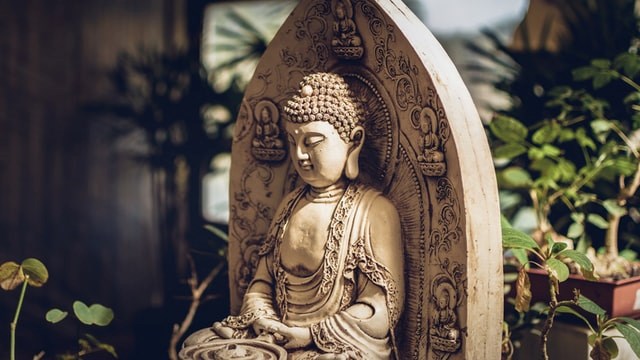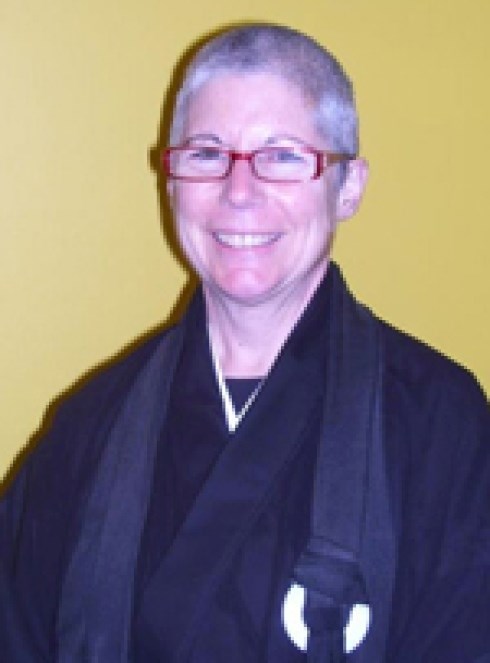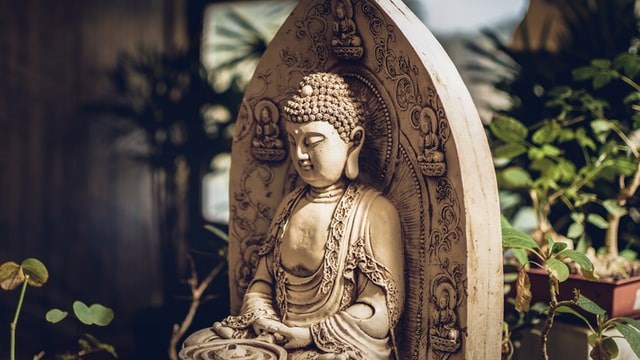 Today I want to share a bit about a beloved koan called ŌĆ£LingzhaoŌĆÖs HelpingŌĆØ. Lingzhao and her family feature in several koans in the anthology ŌĆ£The Hidden Lamp; Stories from Twenty-Five Centuries of Awakened WomenŌĆØ( Caplow and Moon eds).┬Ā┬ĀLingzhao and her aged parents are all masters of Chan (Zen). Having renounced position and wealth, they live very simply and joyfully in 8th┬Ācentury China.┬Ā
Today I want to share a bit about a beloved koan called ŌĆ£LingzhaoŌĆÖs HelpingŌĆØ. Lingzhao and her family feature in several koans in the anthology ŌĆ£The Hidden Lamp; Stories from Twenty-Five Centuries of Awakened WomenŌĆØ( Caplow and Moon eds).┬Ā┬ĀLingzhao and her aged parents are all masters of Chan (Zen). Having renounced position and wealth, they live very simply and joyfully in 8th┬Ācentury China.┬Ā
Lingzhao embodies the true freedom of those who have worked through their conditioning. She is able to act freely and openheartedly without her fears, perfectionism, or inner critic constraining her (Yes, these are all still present within her inner landscape- she┬Āis╠²│¾│▄│Š▓╣▓į).╠²
In Zen there is a sense that everyone is responsible for their own practice and their own awakening. Though it can be intensely communal and fostered by strong relationships, no one can do the work for you.
Knowing there is nothing to be done to erase anotherŌĆÖs suffering Lingzhao is free to improvise:
One day, Layman Pang and his daughter, Lingzhao, were out selling bamboo baskets. Coming down off a bridge, the Layman stumbled and fell. When Lingzhao saw this, she ran to her fatherŌĆÖs side and threw herself to the ground.
ŌĆ£What are you doing?ŌĆØ cried the Layman.
ŌĆ£I saw you fall so IŌĆÖm helping,ŌĆØ replied Lingzhao.
ŌĆ£Luckily no one was looking,ŌĆØ remarked the Layman.
Reading this simple story makes me smile. There is not a hint of self-concern or censure, just reaction to the conditions in a loving and playful way.
Yesterday my co-worker and I were confronted with a hater. Working with the public, we see all kinds, we have many, many positive experiences and a few thankfully rare, difficult ones. In our training weŌĆÖre taught to support our threatened co-workers by standing nearby. We have been shown safe angles of approach, been instructed to keep our distance, and been encouraged to practise de-escalation methods. In the heat of the moment all I remember today is to stand nearby in support of my co-worker who stays magnificently calm under the weight of this individualŌĆÖs hateful language.
Any such verbal attack elicits an automatic fight, flight, flee or flop response in me. My heart rate soars, thoughts and words fail me as automatic responses take over. With all my being I want this person to leave.┬Ā┬ĀJust Leave.
As I struggle to form thoughts and any constructive positive response, my co-worker reaches for the phone, dials, is talking to Security.┬Ā
The hater realizes his time is up, and makes a rowdy exit. In the moments afterwards air rushes back into the room. Shaking stops, and heart rates lower.
Much later, when I have time to reflect, I see that this person is me every time I react to life from a place of pain, from anger or unkindness. In each moment I have the choice to be carried away by my suffering or to see it in a larger picture where my actions and words can have a harmful effect on those around me, and on myself.
As a human being I have the gift of empathy, the gifts of consciousness and heart. In every moment I have choice. If I let go of my bias against haters and speak to the heart of this person, what could I possibly say to help?┬Ā
No one can take away his suffering, but might his pain be eased by acknowledgement, or any action that acknowledges him as a human being rather than a problem? Next time IŌĆÖm faced with difficulty I will smile and remember Lingzhao speaking to us from ancient China.
 Rev. Soshin McMurchy┬Ā(she, her, they, them) lives on the ancestral lands of the┬Ā│¦ĘĪ▒Ę─å░┐┼”ĘĪ▒Ę╠²and Lkwungen speaking peoples, serves as a Buddhist Chaplain with Zenwest Buddhist Society and the University of┬ĀVictoria Multifaith Services, and lives with her partner of 40 odd years.
Rev. Soshin McMurchy┬Ā(she, her, they, them) lives on the ancestral lands of the┬Ā│¦ĘĪ▒Ę─å░┐┼”ĘĪ▒Ę╠²and Lkwungen speaking peoples, serves as a Buddhist Chaplain with Zenwest Buddhist Society and the University of┬ĀVictoria Multifaith Services, and lives with her partner of 40 odd years.
You can read more articles from our interfaith blog, Spiritually Speaking, HERE
Photo by┬Ā╠²┤Ū▓į╠²



